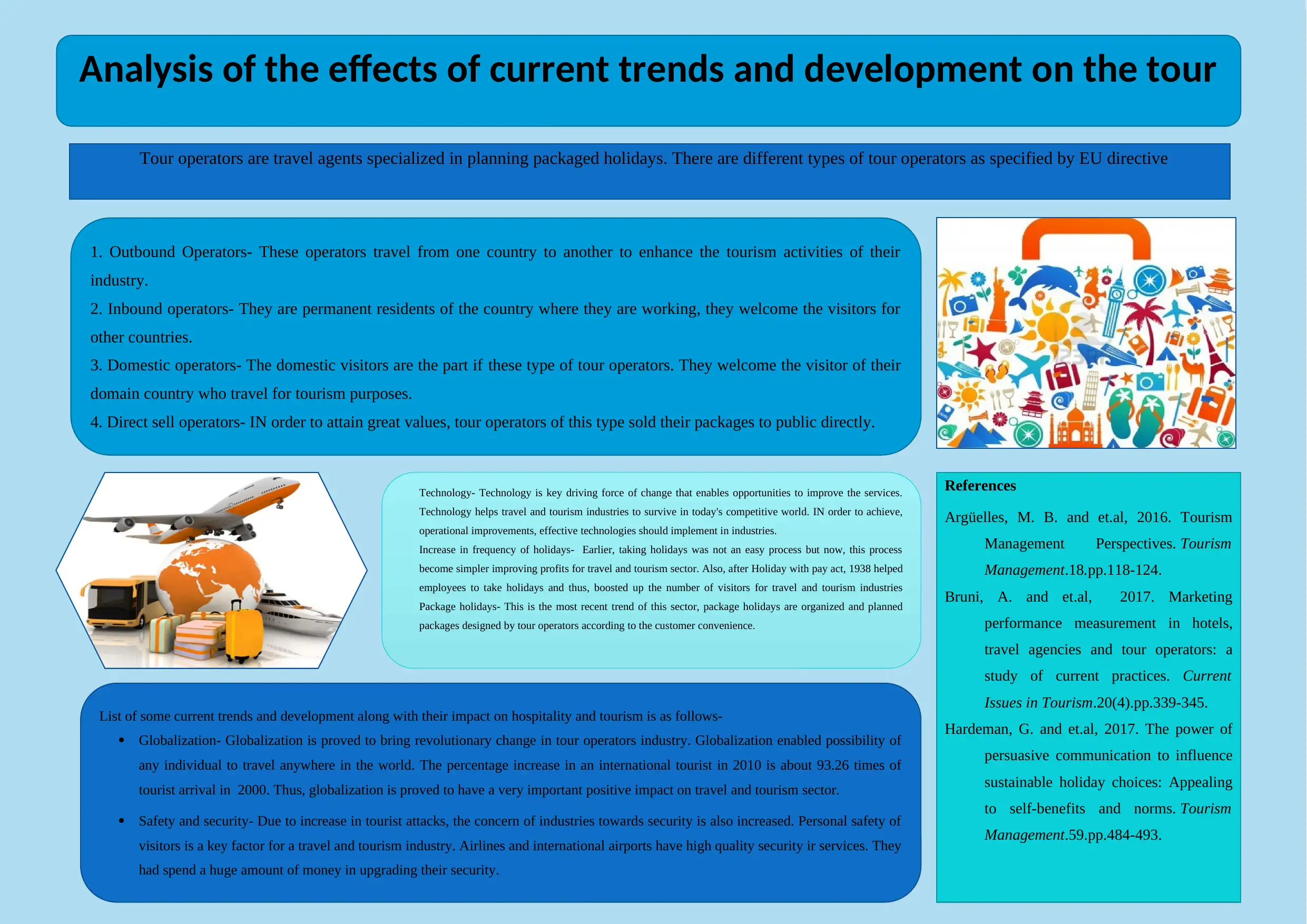An Analysis of the Effects of Trends and Development on Tour Operators
VerifiedAdded on 2023/03/30
|1
|431
|116
Essay
AI Summary
This essay provides an analysis of the effects of current trends and developments on the tour operators industry, highlighting the roles of outbound, inbound, domestic, and direct sell operators. It identifies technology as a key driving force, enabling service improvements in the competitive travel and tourism sector. The essay also discusses the increase in holiday frequency due to factors like the Holiday with Pay Act and the rise of package holidays designed for customer convenience. Furthermore, it examines the impact of globalization, which has significantly increased international tourism, and the growing importance of safety and security measures in response to tourist attacks, with substantial investments in security upgrades by airlines and international airports. This comprehensive analysis offers insights into the multifaceted influences shaping the tour operators industry.






![[object Object]](/_next/static/media/star-bottom.7253800d.svg)